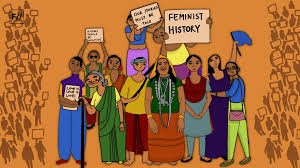Tariq Mahmood Awan
Faiz Ahmed Faiz was a notable Pakistani poet who wrote in Urdu and Punjabi languages. He is widely regarded as one of the greatest poets of the 20th century and a prominent figure in the Progressive Writers’ Movement. His poetry is known for its humanistic, revolutionary, anti-imperialist themes and lyrical and musical distinctions. He was also a journalist, an army officer, a trade unionist and a political activist who encountered persecution and imprisonment for his opinions. He received considerable awards and honours, including the Lenin Peace Prize in 1962 and the Nishan-e-Imtiaz in 1990.
According to some critics, Faiz’s poetry can be divided into four phases. The first phase (1936-1947) is marked by his early romantic poems expressing his love for his homeland, wife, and people. The second phase (1947-1955) is influenced by the partition of India and Pakistan, the Rawalpindi Conspiracy Case, and his imprisonment. His poems in this phase reflect his disillusionment with the new state of Pakistan, his critique of the social and political injustices, and his longing for freedom and democracy. The third phase (1955-1971) is characterized by his involvement in the leftist movements, his support for the liberation struggles of the oppressed nations, and his exposure to the international literary scene. His poems in this phase show his solidarity with the workers, peasants, women and minorities, his admiration for revolutionary leaders like Mao Zedong and Che Guevara, and his experimentation with new physiques and techniques. The fourth phase (1971-1984) is shaped by his exile in Beirut, Lebanon, where he edited the magazine Lotus and witnessed the Arab-Israeli conflicts. His poems in this phase express his grief over the loss of East Pakistan (Bangladesh), his anger at the military dictatorship of Zia-ul-Haq, and his hope for a peaceful and progressive future for Pakistan and the world.
Faiz’s poetry is rich in symbolism, imagery, metaphors and allusions. He draws from various sources of inspiration, such as Urdu classical poetry, Persian literature, Islamic mysticism, Marxist ideology, Western modernism and folk traditions. He employs multiple poetic forms, such as ghazal, nazm, qita, rubaiyat and free verse. He also operates diverse poetic devices, such as rhyme, rhythm, repetition, alliteration, assonance, consonance and onomatopoeia. He creates a unique poetic language that blends the classical and the modern, the local and the global, the personal and the political.
The poetry of Faiz is known for multiple themes expressing human values, sufferings, expressions, desires and ambitions. Some of the recurring themes in Faiz’s poetry are:
- Love: Faiz celebrates love as a powerful force transcending all boundaries and challenging all oppressions. He writes about his love for his wife, Alys Faiz, his homeland Pakistan, his people and humanity, and his love for God and His creation. He also explores the complexities of love, such as its joys and sorrows, hopes and fears, sacrifices and rewards.
- Revolution: Faiz advocates revolution as a necessary means to achieve social justice and human dignity. He writes about revolution as a historical process that involves struggle, resistance, sacrifice and victory. He also writes about revolution as a personal transformation that requires courage, commitment and consciousness.
- Freedom: Faiz demands freedom from all forms of tyranny and exploitation. He writes about freedom as a fundamental human right denied to millions of people worldwide. He also writes about freedom as a collective responsibility that requires solidarity, action and vigilance.
- Beauty: Faiz appreciates beauty as a source of inspiration and consolation. He writes about beauty as a manifestation of God’s grace and mercy. He also writes about beauty as a weapon against horror and violence.
- Suffering: Faiz acknowledges suffering as a reality of life that affects everyone. He writes about suffering due to oppression, injustice, war and poverty. He also writes about suffering as a catalyst for change, compassion and resilience.
Faiz’s poetry has been widely praised for its artistic excellence, intellectual depth, emotional appeal, social relevance and universal appeal. His poetry has influenced many poets, writers, artists, activists and thinkers in Pakistan and beyond. His poetry has been translated into many languages and has been adapted into various forms such as songs, films, plays and paintings. Some have also criticized his poetry for its political bias, religious ambiguity, cultural hybridity and linguistic complexity. Some have accused him of being anti-Pakistan, anti-Islam, pro-communist and pro-India. Some have also questioned his originality, authenticity, clarity and accessibility.
Faiz’s poetry is still relevant for the social, political, cultural and economic issues in Pakistan and the world. His poetry addresses the problems of inequality, oppression, corruption, violence, extremism, intolerance and ignorance that plague many societies today. His poetry also offers the solutions of democracy, humanism, peace, justice, love and hope that inspire many people today. His poetry is a testament to the power of words to challenge the status quo, express the truth, connect with others, and create a better world.
Lastly, the poetry of Faiz Ahmed Faiz is still relevant in Pakistan. His poetry themes include liberty, democracy, revolution, freedom, oppression and beauty, which are relevant to Pakistan’s political, cultural, social and economic issues. Thus, Faiz’s poetry can relate to Pakistan’s problems and inspire many.
Pl, subscribe the video channel of Republic Policy
The writer is a civil servant and leading a research society on administrative federalism.















